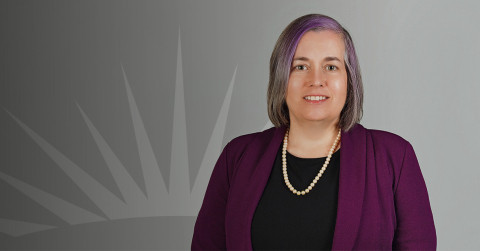
Recognizing and Dealing with Stress and Burnout
“I’m redlined.”
“I have no margin for error.”
“I could work for a week and not be caught up.”
“It’s like drinking from a fire hose.”
“I don’t know where to start.”
“I’m not nearly as good at this as people think.”
“I keep waking up at 3am thinking about the work I didn’t get done yesterday.”
This is what being overstressed and facing burnout sounds like.
There is often a reluctance among consultants to have an open and honest discussion about stress and approaches to dealing with it.
Let’s start with an unabashed statement of fact – any consultant with some amount of success at some point in their career will be faced with being overwhelmed, stressed or feelings of burnout. The reason is simple – activity and growth in a consulting practice is rarely consistent. When the growth spurts happen, consultants get dragged under the associated tidal wave.
Even worse, sometimes pressures at work are compounded by family matters. Spouses, children, parents, finances and a myriad of other aspects of daily life can all come under pressure, sometimes at the same moment work stress is hitting hard. Travel whether work-related or personal can also be a contributing stressor. One of the big four accounting firms recognizes that the average life expectancy of a retiring partner is eighteen months. This is simply from the stress and wear and tear that a partner experiences and the body’s reaction to the removal of this stress upon retirement. Really tragic if you think about it. Their epitaph is basically, “and they died at their desk.”
Over the course of my career, I have had several growth spurts when our firm added a massive new client or I added a significant number of clients to my practice in a short period of time. I have seen many of my business partners and other consultants go through this as well. A practice that is under control and well-behaved can come under a lot of stress very quickly. It’s one thing to recognize the symptoms, but how do you deal with it?
Let’s start with the biggest fallacy and the biggest cure – YOU ARE NOT IN THIS ALONE. When a consultant is struggling with being over-stressed and at risk of burning out, it is easy and common to become isolated. Responses like “I can’t admit that I’m struggling” or “I can’t ask for help or it will be perceived as a weakness” are common. The beginning of overcoming being overstressed and dealing with burnout is realizing that you are not alone and there are people who want to help you, if they only knew there was a problem.
Counteracting this sense of isolation can come in a couple of different forms. First, asking for help within the company. Most consultancies are built on a leverage model and often when a practice grows substantially, additional leverage to other staff is not just indicated, but mandatory for success at the new practice size. Adding lieutenants (e.g., project managers and analysts), or expanding their responsibilities is a key solution to dealing with stress. It allows several people to share the burden, lightening the loads for all.
Another approach to dealing with the isolation is open and honest external communication. Often, letting a client know that you are “redlined” and that some additional time will result in better work product results in not only an accommodation by the customer, but a level of respect that you were candid and focused on giving them the best possible solution. Even better is a roadmap to how you are going to avoid this situation in the future (e.g., adding staff to the project, introducing a new project manager, handing off clients to allow more focus on them).
Finally, it is important to discuss self-care as a critical element of dealing with stress and fear of burnout. You cannot take care of anyone else, until you have taken care of yourself. It is impossible to take care of staff or customers when you’re not right. I know.
What does self-care look like? It completely depends on you. Like running or cycling? Go for it. Appreciate a spa day or deep tissue massage? Make the appointment. Really feel the need for a scotch and a cigar? You do you. I have spent afternoons cycling, wood working, or making pasta Bolognese that have all had the effect of relieving massive stress. This allowed me to return to the stressor refreshed and much, much more productive.
It is also crucially important to have someone to talk to when you are drinking from a fire hose. It really doesn’t matter who as long as it helps. A clergyperson, spouse, mentor, professional therapist/psychologist, co-worker, or a neighbor, any and all will do as long as they provide the desired effect – a chance to openly discuss how you are feeling and help you think about approaches to getting through it. Employee Assistance Programs (EAPs) also have tremendous resources available to provide counseling and support. Quotes like “many hands make light work” and “a cord of three strands is rarely broken” come to mind. These people can also be accountability partners as you try to implement changes. Some of these mentors have been through the dark days too and can give you counsel based on their personal experiences.
Practitioners at professional service firms experience high levels of stress, but we certainly don’t have a monopoly on stress or burnout. Anyone dealing with the stresses of work, home, family, and/or finances can be dealing with these feels of overwhelming stress and burnout. Hopefully, some of this advice helps.
In a nutshell, most successful consultants have been stressed and felt burned out. Do not go through it alone. Get others involved. Open lines of communication to combat the isolation. Take care of yourself. I promise, you will get through it.



